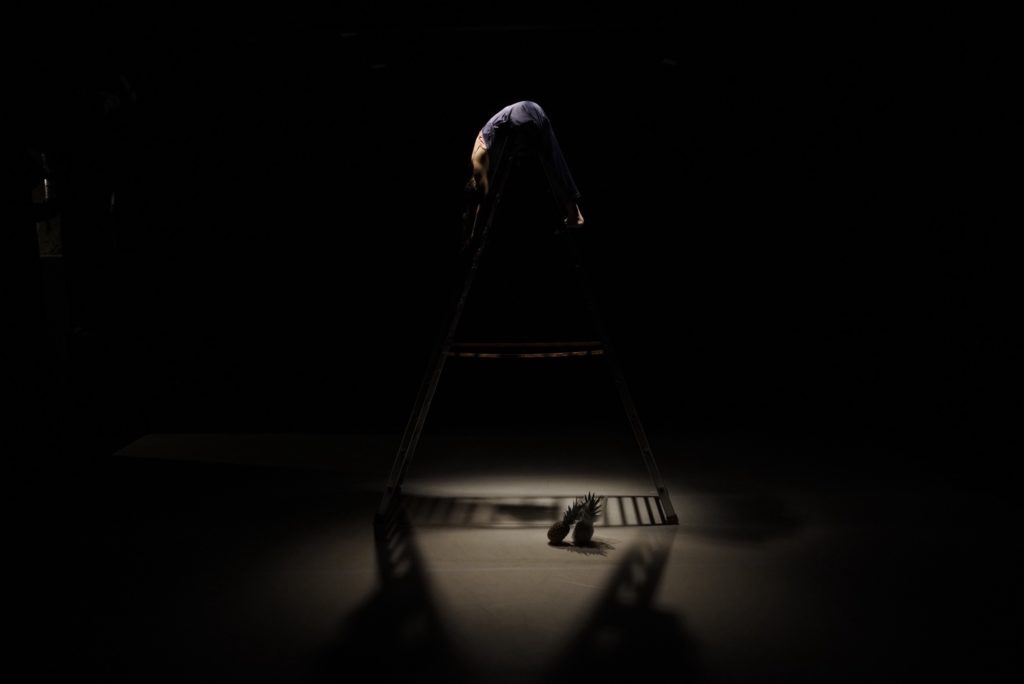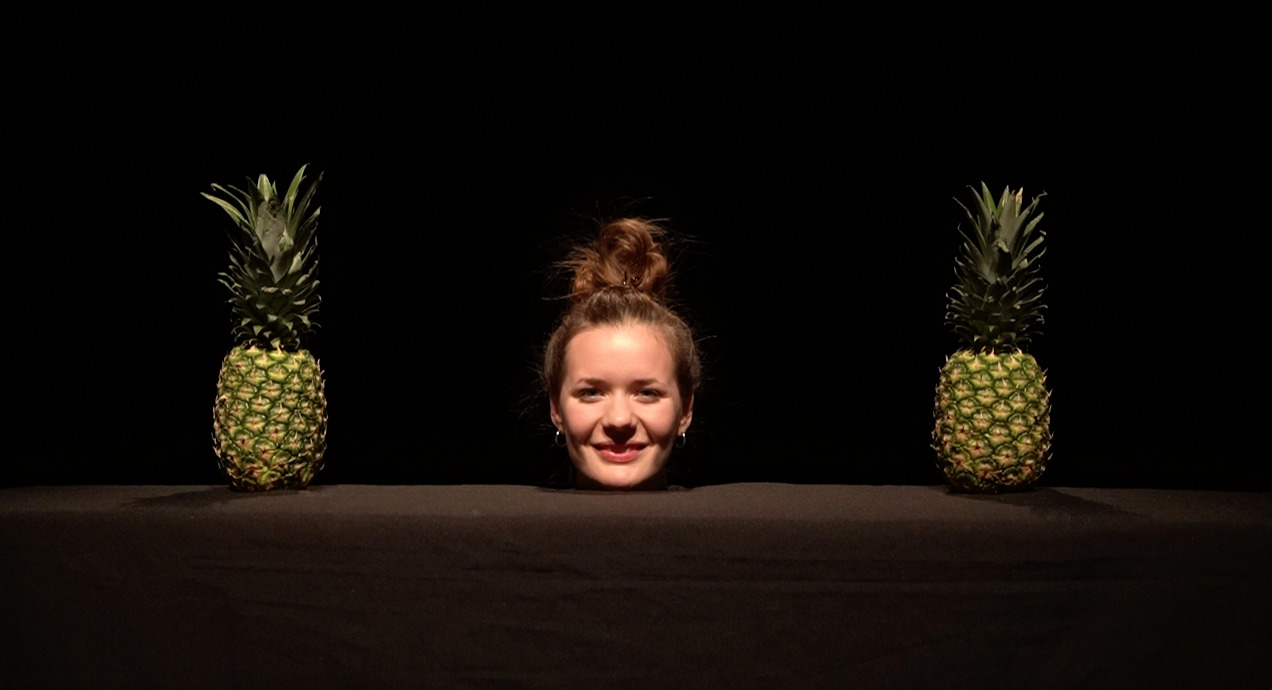Words by Katie Hagan.
Marianne Tuckman’s dance theatre-y piece The Dirt, which came to Camden People’s Theatre last week, is a dystopic lesson in the unavoidable and dirty impact of climate change.
This week alone we’ve seen news of disastrous flooding across the world, with the Swiss and Italian glaciers in the Alps melting so much that the Alpine border needs to be redrawn. What needs to be done to wake the UK up to these realities and initiate franker conversations?

Marianne’s one-woman show begins with her flopped over a ladder. Two pineapples sit neatly next to each other underneath. The stage is sparse and dimly lit by a spotlight. A perfect family picture, it quickly transpires that Marianne is a bored housewife who adores her kids (the pineapples), wants to go on holiday, and craves the attention and help of her husband who is doing more important things of course, like going to the gym.
Over the next 50-minutes, Marianne The Housewife experiences every single emotion, from happy to sad, to frustrated and jubilant. Marianne embodies the housewife character uncannily and cleverly, dousing her solo with relatable humour and currency (there’s a brilliant line about Arts Council England’s Developing Your Creative Practice funding).
When not playing The Housewife, Marianne morphs into her cleaner-cum-handy man with “punky hair”. Marianne is equally as humorous and at home in her role as The Punk as she is as The Housewife.

Towards the end, The Punk babysits the two pineapples (one is called Gustav, I couldn’t catch the other name!), and they embark on a conversation. They meander and ramble a bit, touching on everything and anything including how pineapples were a status symbol in the 18th Century where human faeces were used to cultivate their growth in expensive glasshouses; eviction; memories; Christmas. It is clear though that throughout all this, The Punk knows Gustav is not listening and the conversation is falling on uninterested or jaded ears.
The Dirt asks many questions related to climate change. Rather than being irritatingly moralistic, it paints a picture of what might happen tomorrow if change isn’t set in motion today. Perhaps the most poignant note for me is its ability to position climate change in the context of a UK family home where, let’s face it, the climate crisis is perceived as just another thing to worry about. Getting the perspectives here of both the more well-off housewife and a working-class cleaner was a good move to showcase that the social classes view and prioritise the climate crisis differently. Maybe more should be done by those in power, then, to acknowledge and validate these differences (as opposed to polarising the two) to incentivise change.
